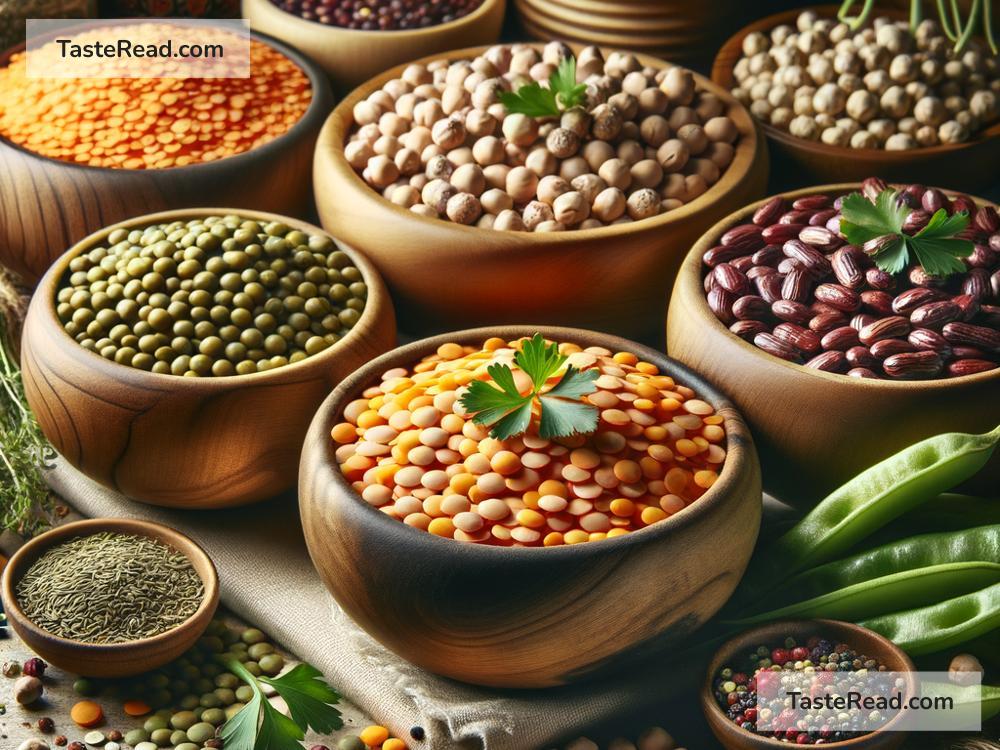Cooking with Organic Legume Varieties: Elevating Your Meals The Natural Way
In today’s health-conscious world, more and more people are turning to organic foods to enhance their diets. Among the vast array of organic options available, legumes stand out for their nutritional benefits, versatility in cooking, and their role in promoting sustainable agriculture. But what exactly are legumes, and why should you consider incorporating organic varieties into your meals? Let’s dive into the world of legumes and discover the magic they can bring to your kitchen.
What Are Legumes?
Legumes are a family of plants that produce a pod with seeds inside. Common legumes include beans, lentils, peas, and chickpeas. What makes legumes particularly appealing is their nutritional powerhouse: they’re rich in protein, fiber, vitamins, and minerals, making them an excellent addition to any diet.
Why Go Organic?
Opting for organic legumes means choosing products that are grown without synthetic pesticides or fertilizers. This not only has a positive impact on your health but also supports eco-friendly farming practices that benefit our planet. Organic legumes are often considered to have a better taste and higher nutritional content than their non-organic counterparts, which is an added bonus for your cooking adventures.
Cooking with Organic Legumes: Where to Start
If you’re new to cooking with organic legumes, the variety might seem overwhelming. Here’s a simple guide to some popular types and how to use them:
- Black Beans: Perfect for Mexican dishes, soups, and salads. Their dense texture and rich flavor make them a favorite in vegetarian burgers too.
- Chickpeas: Best known for their role in making hummus, chickpeas are also great in salads, curries, and as a crunchy roasted snack.
- Lentils: With their quick cooking time, lentils are perfect for soups, stews, and as a meat substitute in sauces.
- Peas: Sweet and tender, peas are excellent in soups, pasta dishes, and salads, or simply as a side dish.
Tips for Cooking with Organic Legumes
- Rinse and Sort: Always rinse your legumes before cooking and sort through them to remove any debris or small stones that might have been missed during packaging.
- Soak When Needed: Beans benefit from soaking as it reduces cooking time and makes them easier to digest. Lentils and split peas, however, do not require soaking.
- Season Well: Legumes absorb flavors well, so don’t be shy with herbs and spices. Adding a piece of kombu (seaweed) while cooking can also improve digestibility and add a subtle umami flavor.
- Mix it Up: Don’t be afraid to combine legumes with grains, vegetables, or even fruits in your recipes. This not only adds flavor and texture but also increases the nutritional value of your meal.
The Benefits of Incorporating Organic Legumes in Your Diet
Adding organic legumes to your diet can have several health benefits. They are an excellent source of plant-based protein, making them an essential element of vegetarian and vegan diets. The high fiber content of legumes helps in maintaining a healthy digestive system and can contribute to lowering cholesterol levels. Furthermore, legumes are low in fat and high in essential nutrients like iron, potassium, and folate, supporting overall health and well-being.
From an environmental perspective, cultivating organic legumes supports sustainable farming practices. Legumes have a unique ability to fix nitrogen in the soil, reducing the need for chemical fertilizers and improving soil health. This, in turn, supports biodiversity and helps in the conservation of natural resources.
Bringing It All Together
Cooking with organic legumes is not just a step towards a healthier diet; it’s a choice that supports sustainable living and offers a bounty of flavors and textures to explore in your culinary creations. Whether you’re whipping up a classic chili with organic black beans, a refreshing chickpea salad, or a comforting lentil soup, the possibilities are endless.
Start experimenting with organic legume varieties in your meals and discover the joy of cooking with these nutritious, flavorful, and environmentally friendly ingredients. Not only will you elevate your meals, but you’ll also be taking a step towards a healthier planet and a healthier you.


